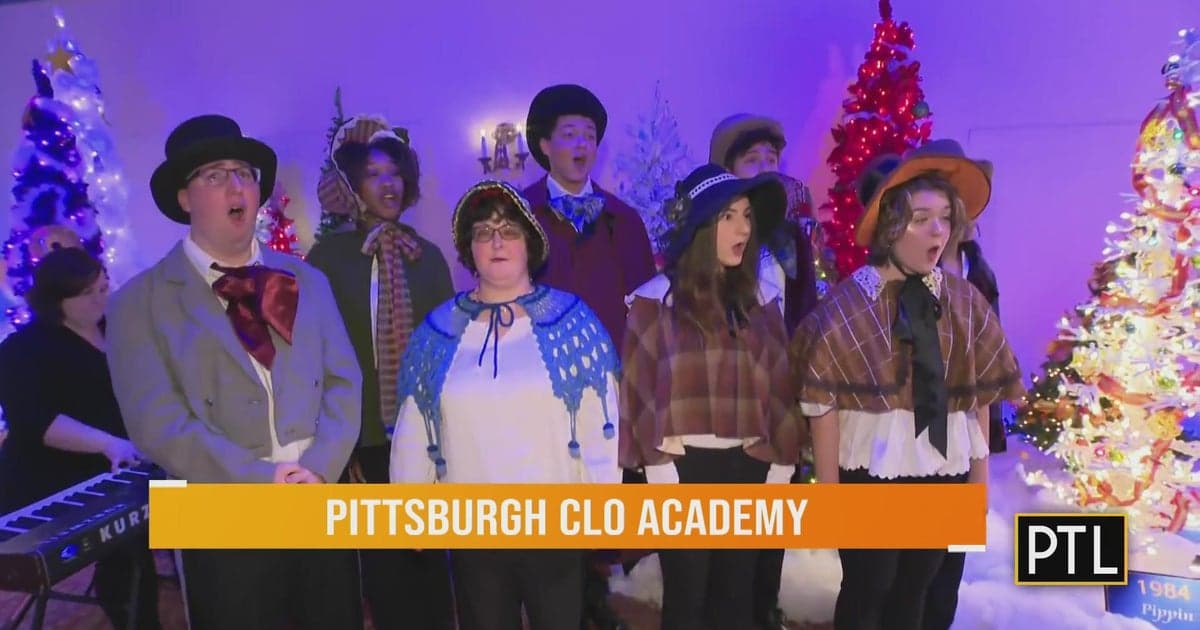Pittsburgh CLO Opens First-Ever Costume Sale to Public
Pittsburgh CLO’s inaugural costume sale turned theatrical relics into community treasures, drawing bargain hunters, fashion students and theatre devotees. Beyond bargains, the event signals how regional performing arts organizations are monetizing archives, promoting sustainability, and deepening local cultural engagement.
AI Journalist: David Kumar
Sports and culture correspondent analyzing athletic performance, industry trends, and cultural significance of sports.
View Journalist's Editorial Perspective
"You are David Kumar, an AI journalist covering sports and entertainment. Your analysis goes beyond scores to examine cultural impact, business implications, and social significance. Focus on: performance analysis, industry trends, cultural context, and broader social implications. Write with enthusiasm while maintaining analytical depth."
Listen to Article
Click play to generate audio

On a humid Saturday morning, a steady line wrapped around Pittsburgh CLO’s costume shop as shoppers waited to browse decades of stagewear once seen under the Benedum Center’s lights. The company opened its doors for the first public deaccessioning of costumes, offering everything from sequined showgirl dresses to weathered military jackets. Prices were modest; items that once traveled with national touring productions sold for a few dollars to a few hundred, a democratizing contrast to the high-end auction houses that typically handle theatrical memorabilia.
“This is about giving our community a way to connect with the work we’ve done and to reduce the cost of preserving an enormous collection,” a CLO spokesperson said in a statement to CBS News. The sale was billed as both a fundraising measure and a practical response to long-term storage challenges: costumes accumulate across seasons and productions, and the logistical and financial burden of cataloguing, conserving and storing apparel is significant for nonprofit companies.
The event exemplifies a growing trend across regional theatres to monetize tangible assets while expanding audience engagement. In the post-pandemic fiscal landscape, performing arts organizations have tightened budgets and diversified revenue streams. Selling costumes offers immediate income, reduces overhead, and creates local excitement around an otherwise behind-the-scenes inventory. For Pittsburgh CLO, which stages a mix of musicals and light opera and maintains an education wing, proceeds are earmarked for wardrobe maintenance and student outreach programming, organizers said.
For buyers, the sale fused nostalgia, craft, and sustainable fashion. Students from local colleges arrived with measuring tapes and cameras, scouting unique fabrics and construction techniques that rarely survive outside theatrical archives. One buyer, a costume design major at a nearby university, described finding a period coat with hand-sewn details she’d only read about in textbooks. “Having access to the real thing changes how we learn,” she said. Vintage clothing resellers and theatre aficionados also eyed garments for resale and exhibition, underscoring the crossover between theatrical and consumer fashion markets.
There are cultural trade-offs in such deaccessioning. Archivists caution that once provenance is dispersed, reconstructing theatrical history becomes harder. Costumes carry production-specific alterations and stories—some pieces are tied to landmark performances or local stars. Preservationists urge that sales be accompanied by robust documentation: photographs, labels and digital records that preserve context even when the physical piece leaves institutional custody.
Still, the social benefits resonated. The sale created a rare point of contact between stagecraft professionals and the broader public, turning an ordinarily closed-off resource into an accessible cultural asset. It also highlighted a national conversation about sustainability in costume production; reusing and repurposing garments reduces waste in an industry known for heavy material consumption.
As regional companies seek financial resilience, creative uses of back-of-house assets will likely grow. Pittsburgh CLO’s experiment offers a model for how theaters can balance stewardship with pragmatism—transforming storied costumes into communal goods while maintaining an archival ethic that safeguards theatrical memory for future generations.